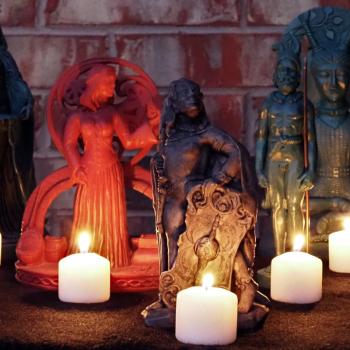3. Maimonides, Melachim 11:3; 12:5
4. Sanhedrin 91b, 99a; Berachos 34b; Pesachim 68a; Shabbos 63a; cf. Maimonides, Teshuva 9:2, Melachim 12:2.
5. Tosafos, Rosh HaShannah 16b, s.v. leyom din; Emunos V'deyos 6:4 (end), Raavad, Hilchos Teshuva 8:8; Kesef Mishnah, Teshuva 8:2; Derech Hashem 1:3:11.
6. Ramban (Nachmanides), Shaar HaGemul. According to the Ramban and other authorities, the "World of Souls" is also often referred to as the Garden of Eden.
7. Sanhedrin 99a.
8. Ramban, Shaar HaGemul. Citing Talmudic and Midrashic sources, the Ramban writes that there are three judgment days, i.e., three times the soul is judged:
1) Rosh Hashannah, which reviews the past year and determines material circumstances for the upcoming year;
2) Day of death, which reviews the deceased's life (life review) and determines whether it needs to continue the trying experience of further review or is ready for Paradise;
3) The Great Day of Judgment, which is when all who lived are resurrected, the righteous for everlasting life (in a spiritualized physical world, according to the Ramban) and the wicked for what amounts to termination (according to others there will be a middle category of those who are worthy to continue in a disembodied spirit form but not the more rarified physical form of the resurrected body in a resurrected world). There will also apparently be different degrees of reward (i.e., experiencing the Presence of God) in this Renewed World after the Great Judgment Day, all depending on one's life's actions.
It has been asked: If a person is judged at his death as to his status in the World to Come what is the purpose of the Great Day of Judgment? One answer given is that after a person dies all the children, all the good and bad deeds and influences he had on others are "still in motion." Only at the end of history can the "final tally" be made, then, as to the impact a person had on the world in his or her life.
9. Derech Hashem 1:3:13.
10. Shaar HaGilgulim, Chapter 8; Derech Hashem 2:3:10.
11. Many are equally as surprised to discover that reincarnation was an accepted belief by numerous of the great minds underpinning Western civilization. Although Judaism, obviously, does not necessarily agree with all their thoughts and philosophies, nevertheless Plato, for instance (in Meno, Phaedo, Timaeus, Phaedrus, and the Republic), espouses belief in the doctrine of reincarnation. He seems to have been influenced by earlier classic Greek minds such as Pythagorus and Empedocles. In the eighteenth century, the Age of Enlightenment and Rationalism, thinkers like Voltaire ("After all, it is no more surprising to be born twice than it is to be born once") and Benjamin Franklin expressed an affinity for the notion of reincarnation. In the nineteenth century, Schopenhauer wrote (Parerga and Paralipomena), "Were an Asiatic to ask me for a definition of Europe, I should be forced to answer him: It is that part of the world which is haunted by the incredible delusion that a person's present birth is first entrance into life..." Dostoevsky (in The Brothers Karamazov) refers to the idea, while Tolstoy seems to have been quite definite that he had lived before. Thoreau, Emerson, Walt Whitman, Mark Twain, and many others acknowledged and/or espoused some form of belief in reincarnation. It should be noted, however, that some classic Torah authorities, most notably, 10th century authority Saadia Gaon, denied reincarnation as a Jewish tenet. Emunos V'Deyos 6:3.
12. The Talmud relates that second century sage Rabbi Shimon bar Yochai and his son Elazar fled to a cave to escape Roman persecution. For the next thirteen years they learned all day and night without distraction. According to Kabbalistic tradition (Tikkunei Zohar 1a) it was during those thirteen years that he and his son first composed the main teachings of the Zohar. Concealed for many centuries, the Zohar was published and disseminated by Rabbi Moshe de Leon in the thirteenth century.
13. Although the Zohar is generally referred to as a single multi-volume work, comprising Zohar, Tikunei Zohar, and Zohar Chadash, it is actually a compilation of several smaller treatises or sub-sections.
14. Zohar I:131a, 186b, 2:94a, 97a, 100a, 105b, 106a, 3:88b, 215a 216a; Tikunnei Zohar 6 (22b, 23b), 21 (56a), 26 (72a), 31 (76b), 32 (76b), 40 (81a), 69 (100b,103a,111a,114b,115a,116b), 70 (124b,126a, 133a, 134a, 137b, 138b); Zohar Chadash 33c, 59a-c, 107a; Ruth 89a.
15. The Zohar (I 131a): "Rabbi Yosi answered: 'Those bodies which were unworthy and did not achieve their purpose will be regarded as though they had not been.' Rabbi Yitzchak [disagreed and] said: ‘For such bodies the Holy One will provide other spirits, and if found worthy they will obtain an abiding in the world, but if not, they will be ashes under the feet of the righteous.'" Cf. Zohar II 105b.




